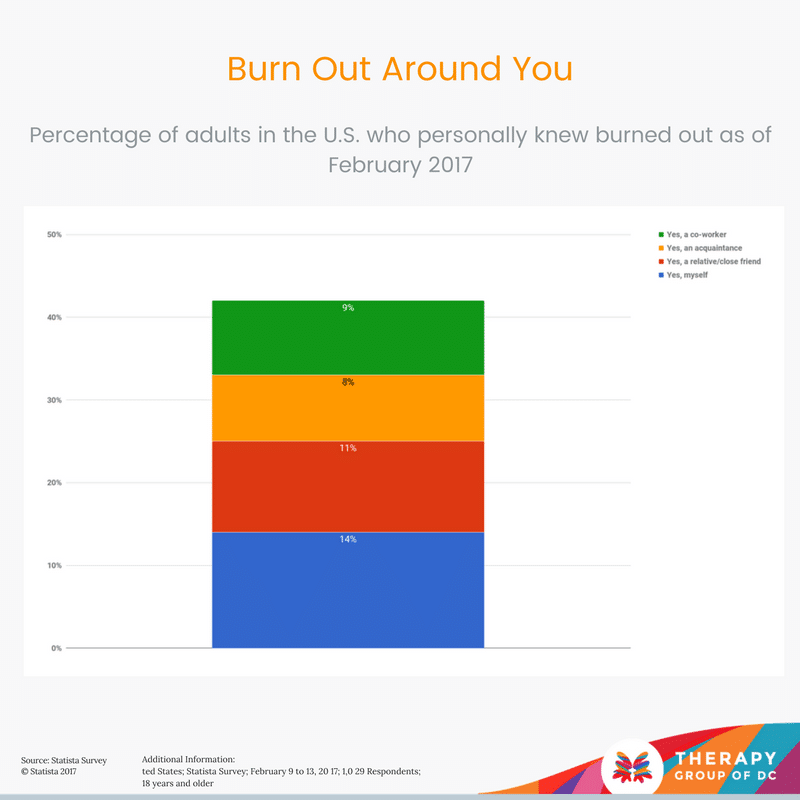Might Look Like Depression But Maybe It’s Work Stress and Burnout
Those of us who call DC home tend to be people who are enthusiastic, motivated, education-oriented, striving types who are determined to make a difference. For all the good those traits can do, those very characteristics can also set us up for high levels of job stress and burnout.
The Heavy Personal Costs of Intense Job Stress
Looking back at data from a few years ago, we get a sense of the magnitude of stressful work on well-being and mental health. In a 2014 survey, 64% of employees in North America reported high levels of stress mixed with extreme fatigue and feeling out of control. Stop for a moment and think about that.
More than 3 of 5 employees reported exceptionally high levels of stress with significant consequences for their well-being and mental health.
Who Do You Know That’s Burned Out?
In a recent nationwide survey, 42% of the respondents reported either being burnt-out themselves or knowing someone close to them who is. In other words, 2 out of every 5 people in the US are impacted by burnout. Therefore, when thinking about job stress and burnout, the question isn’t, “Do you know someone who’s dealing with burnout?“.
Instead, espeically given DC’s magnetic-like draw for high achievers, the more appropriate question is, “Who in your life is burnt out?“.
Is What I’m Feeling Burnout?
Researchers examining burnout believe that it involves some combination of emotional exhaustion, a sense of detachment from your life, and reduced personal accomplishment at work.
- You may begin to feel as though you are no longer able to invest yourself in your work.
- You may start to feel cynical toward the individuals with whom you work, and find yourself disengaging from those relationships.
- You may begin to feel as though you can’t do anything right, that you are less competent and successful than you used to be.
Burnout vs. Depression – Either Way Help Is Available
Burnout can also look very similar to depression and include symptoms such as low mood, loss of interest, appetite/weight change, and difficulty concentrating.
Although there are more questions than answers about the nature of burnout vs. depression, if you are experiencing these symptoms, it might be time to act. There are many talented and warm Therapists in DC here to help you evaluate the impact that your work is having on you and your life and how to go about making changes.
Get personalized access to one of our therapists if we can be of help.


